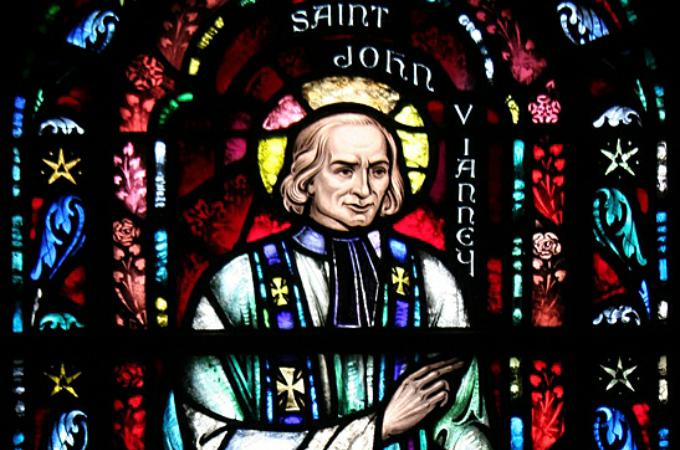The secret to St. John Vianney's missionary priesthood
Today (August 4) the Church remembers the witness of St. John Vianney, the "Cure of Ars," who is the patron saint of parish priests.
John Vianney was born in 1786, just two years before revolutionary fervor swept through France. The French Revolution would mean the end of Catholic culture that had endured for centuries.
In 1790, laws were enacted that essentially made the practice of the Catholic Faith illegal. A state sponsored pseudo-Catholic church was established, but this was more of a ministry of the government than that of Christ. Its purpose was to make good citizens, not to engender Christian holiness. It was a simulacrum of the Church, rather than the reality.
John Vianney's practice of the Church's Faith went underground and he along with it. With most of the clergy exiled or under arrest, he labored with the Catholic faithful who remained, mostly laity, to evangelize and catechize the best that they could, knowing that their actions made them traitors and enemies of the French state.
The Revolutionary Government of France gave way to the tyranny of Napoleon, and in 1809, John Vianney was drafted into Napoleon's army. But his conscience could not bear fighting on behalf of a power he believed opposed to Christ, and so he deserted the army before he could be deployed.
In the year 1812 he entered the seminary and was ordained a priest in the year 1815.
In 1818, John Vianney was sent by his bishop to the parish of Ars, a godforsaken place with maybe 230 inhabitants. The place was basically a ruin. His bishop told him that "there is little love of God in that parish; you will have to the one who puts it there."
That he did.
By 1855, four years before John Vianney's death, some 20,000 pilgrims flocked to Ars in hope of just getting a glimpse of the holy priest.
John Vianney was canonized a saint by Pope Pius XI in the year 1925.
What can we learn from his life?
In my limited experience there are two approaches that characterize the way that parish priests will approach their vocation - one that is oriented towards the administrative and the other towards the ascetic or athletic.
The administrative approach favors the structural and institutional forms of parish life, emphasizing the maintenance of buildings and grounds. These things are valuable, but the great weakness of this approach is that one does not come to know Christ and become his disciple simply because one inhabits faith-based structures or matriculates through institutions. One of the hard lessons the Church faced in the wake of 1789 (and even today!) was precisely this. The Church has been overemphasized as an administrative entity such that when a crisis came, one which deprived the Church of its structures, the Church nearly collapsed. Those priests who were so invested in administration proved ill-equipped to deal with the situation and the Church almost disappeared from France.
The other priestly approach is the one taken by John Vianney - the athletic or ascetic. This approach places an emphasis not so much on the administration of structures and buildings, but on the proclamation of the Gospel, the encounter with Christ that leads to conversion, and the distinct practices of the Christian life. The athletic approach necessitates that a priest accustom himself to hardship, to difficulty, and to disappointment. It entails a life of sacrifice and meets the demands of mission with an openness to what the Lord wants, even if one is surprised by what the Lord asks him to do.
It isn't as if administration is unnecessary or unhelpful, but it is just not the first step in terms of efforts to serve the Church's mission.
The administration of structures always follows in terms of the athletic/ascetic approach, but it does not take the lead. First, people must know the Lord Jesus, and only then will they know what the Lord wants them to build and to do. And whatever the people build and do is always in service of the mission that Christ gives, not causes or ideologies that we make up for ourselves.
May St. John Vianney intercede for us and help us to understand how not only the Church's priests, but all Christ's faithful can best serve the mission that he gives to his Church.



















